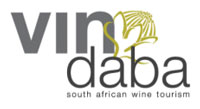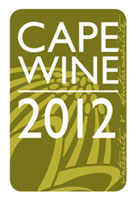Vindaba aimed at specialist tourism

The Minister of Tourism, Marthinus van Schalkwyk, has identified wine tourism as one of the fastest-growing and most lucrative sectors of the global tourism market and Vindaba will assist the national tourism sector strategy towards positioning South Africa as one of the world's top 20 travel destinations by 2020.
The initiative represents a partnership between Wines of South Africa (WOSA) and SA Tourism, as well as the Wine Routes, Cape Town Tourism, Cape Town Routes Unlimited and the Department of Finance, Tourism and Economic Development of the Western Cape.
This new spirit of collaboration amongst tourism bodies is intended as a launching pad to position South Africa on the world map of wine tourism and form part of a long-term strategy.
SA Tourism's global manager for events, Sugen Pillay, says wine tourism is an important part of South Africa's leisure offering to travellers and that the wine industry should be supported by the tourism industry. "South Africa offers a diverse and exciting range of tourism experiences. The wine lands bring a further degree of competitiveness to our industry. At the same time, local and international tourism can help to augment the revenue streams of the wine sector."
The organisers plan to turn Vindaba into an event that will assume the status of a leading wine exhibition amongst the international wine and travel fraternities. It will also offer specialist seminars, focus on gastro-tourism and provide tailor-made wine tours for the international and domestic travel business fraternity.
Synergy with Cape Wine 2012

Although conceived as a stand-alone event, it will be staged simultaneously with Cape Wine 2012 at the Cape Town Convention Centre. Cape Wine, hosted biennially by WOSA, exhibits a wide spectrum of South Africa's wines and wine styles to the international wine trade, from buyers to importers and sommeliers in important export markets. It also attracts wine, travel and lifestyle media.
Cape Wine is considered the most successful international wine trade show in the Southern Hemisphere and has been held every alternate year since 2000 with the exception of last year, given South Africa's hosting of the 2010 FIFA World Cup. Next year show will be the first in four years and will provide an important opportunity for the industry to update its markets on new developments. It is expected that some 320 wineries will exhibit.
"There is a natural synergy between Cape Wine and Vindaba," says WOSA CEO Su Birch, who has been one of the prime drivers to establish a coherent strategy to promote wine tourism that involves decision makers from the wider tourism sector. "As far as we know, this is the first initiative of its kind anywhere in the wine-producing world in which the wine and tourism sectors are jointly presenting a wine and wine tourism event.
"Not only will the two exhibitions feature many of the same producers but there are other common links. South Africa has been steadily building a domestic and global awareness for the range and excellence of its wines and is now considered a significant wine-producing country. With provenance playing such a strategic role in wine marketing, it makes sense to advance wine-related tourism, so wine lovers are actively encouraged to visit the source of the products they enjoy."
Birch believes wine tourism, which began in 1971 with the launching of the first wine route in Stellenbosch, also has the potential to create more jobs. The wine industry in its entirety currently provides employment for 275 000 people.
Eco-friendly shows
In what is reported as another world first, both events will be staged as eco-friendly exhibitions, making use exclusively of recycled and recyclable materials. South Africa is already recognised as a world leader in eco-sustainable wine production. Now it plans to establish a similar reputation for wine tourism by marketing Vindaba as a 'green' initiative.
Redefining long-haul attractiveness
Van Schalkwyk has also identified South Africa's wine tourism as central to marketing the country as an attractive long-haul destination. Speaking at a tourism stakeholder workshop in April, he said, "Wine tourism is a vital product offering in South Africa's tourism product as it helps improve the country's competitiveness against destinations such as Brazil, Australia, Kenya and Thailand."
Although Australia has a highly developed wine tourism industry, many of its wine regions are located far apart, unlike South Africa where production is concentrated mostly in the Western Cape.
Van Schalkwyk said travel and tourism's contribution to global GDP was expected to grow this year, despite the fragile world economy, and was projected to reach $5 990 billion, while providing 258 million jobs.
The South African wine industry has an estimated annual turnover of R22 billion, with exports contributing R7 billion and wine tourism, a further R5 billion.
Van Schalkwyk highlighted that with emerging countries becoming more popular travel destinations than their developed counterparts, South Africa was well placed to promote its tourism offerings. At the same time, the country could capitalise on the world's steadily growing emergent middle class.
In Africa alone, the middle class has grown to around 300 million people, according to the African Development Bank.

























